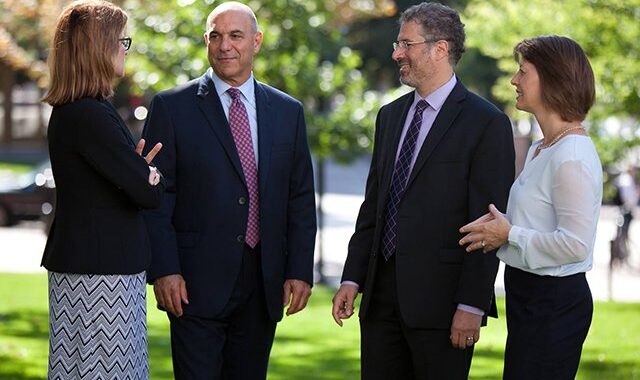Budgeting for Millennials

In an era characterized by rapid technological advancements, shifting economic landscapes, and evolving social norms, millennials find themselves facing a unique set of financial challenges. Born between 1981 and 1996, this generation has grown up in a world of constant change, and their financial journey is no exception. Navigating these challenges requires a strategic approach to budgeting that aligns with millennials’ values, goals, and circumstances.
The Financial Landscape for Millennials
Millennials have encountered a vastly different financial environment compared to previous generations. Many entered the job market during the aftermath of the 2008 financial crisis, which had a profound impact on employment opportunities, wages, and the cost of living. Furthermore, the rise of the gig economy and freelance work has altered the traditional job structure, providing both flexibility and instability in income streams.
The burden of student loan debt has also played a pivotal role in shaping millennials’ financial lives. With the increasing cost of higher education, many millennials are weighed down by student loans, making it challenging to invest in other areas like homeownership or retirement. This financial pressure has driven millennials to adopt new strategies for budgeting and saving.
Crafting a Millennial-Focused Budget
- Embrace Technology: Millennials are the first generation to truly grow up with the internet and smartphones. Leverage this technological familiarity by utilizing budgeting apps and tools. Platforms like Mint, YNAB (You Need A Budget), and PocketGuard enable users to track their expenses, set financial goals, and receive real-time insights into their spending patterns.
- Prioritize Financial Goals: Start by defining short-term and long-term financial goals. Whether it’s paying off student loans, building an emergency fund, or saving for a dream vacation, having clear objectives provides motivation and direction for budgeting efforts.
- Distinguish Needs from Wants: With the proliferation of online shopping and subscription services, it’s easy to blur the lines between necessities and indulgences. Practicing mindful spending involves critically evaluating whether a purchase aligns with one’s goals and values.
- Create a Realistic Budget: One size does not fit all, especially when it comes to budgeting. Millennials should customize their budgets to suit their unique financial situations. Factor in rent, utilities, groceries, transportation, debt payments, and discretionary spending. Be sure to allocate funds for entertainment and leisure activities as well.
- Address Student Loan Debt Strategically: For many millennials, student loans are a significant financial burden. Research repayment options, consider refinancing if beneficial, and explore loan forgiveness programs that might be applicable to your profession.
- Embrace Minimalism: The minimalist movement aligns well with millennial values of sustainability and experience-driven living. By decluttering physical possessions and reducing unnecessary spending, millennials can redirect resources towards what truly matters to them.

Tackling Millennial-Specific Challenges
- Housing Woes: Owning a home might seem like an unreachable dream for many millennials. Skyrocketing real estate prices and hefty down payment requirements present challenges. Some millennials are choosing to delay homeownership and focus on building their financial stability first.
- Retirement Planning: With the uncertainty surrounding the future of Social Security and changing retirement norms, millennials must take their retirement planning into their own hands. Starting early and consistently contributing to retirement accounts, such as a 401(k) or IRA, can make a substantial difference over time due to compounding interest.
- Healthcare Costs: The rising cost of healthcare is a concern for millennials, particularly as they transition into adulthood and may no longer be covered by their parents’ insurance plans. Researching healthcare options, understanding insurance coverage, and building an emergency health fund are crucial steps.
- Side Hustles and Entrepreneurship: The gig economy has provided millennials with opportunities to explore side hustles and entrepreneurial ventures. While these endeavors can offer additional income streams, it’s essential to manage the associated financial complexities, such as taxes and irregular income patterns.
The Importance of Adaptability
Budgeting for millennials is not a static process; it requires adaptability and continuous evaluation. As life circumstances change—career advancements, life partnerships, and growing families—financial priorities and strategies must also evolve. Regularly reviewing and adjusting your budget ensures that it remains aligned with your current goals and aspirations. For further help, tips, and advice on debt settlement, visit their page to learn more.
In conclusion, millennials face a distinct set of financial challenges that demand innovative approaches to budgeting. Embracing technology, setting clear goals, and making deliberate spending choices can help navigate the complexities of student loans, housing costs, retirement planning, and more. By embracing a flexible and forward-thinking mindset, millennials can pave the way toward financial security and fulfillment despite the ever-changing financial landscape.


 Heating Oil Still Relevant in Today’s World?
Heating Oil Still Relevant in Today’s World?  CBD’s Impact on Digestive Health
CBD’s Impact on Digestive Health  Omega-3 for Vegetarians
Omega-3 for Vegetarians  The Science Behind Shake Ingredients
The Science Behind Shake Ingredients  The Role of Accident Attorneys
The Role of Accident Attorneys  Popularity of Hemp and CBD
Popularity of Hemp and CBD